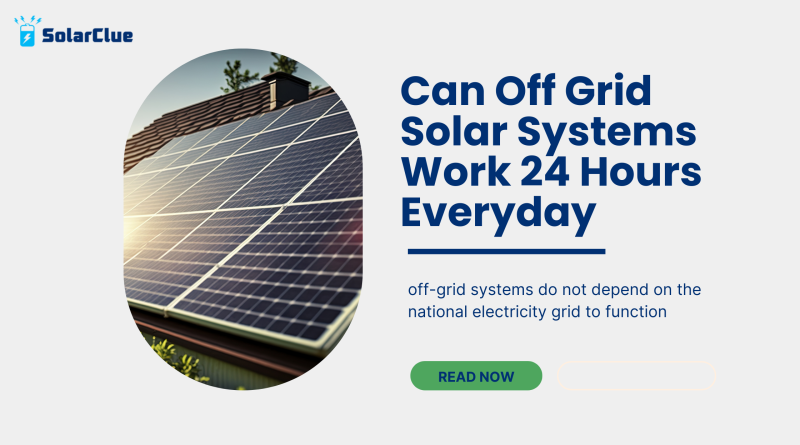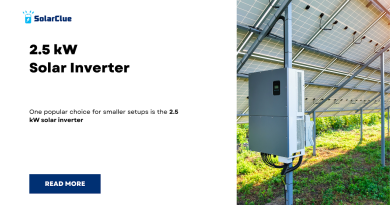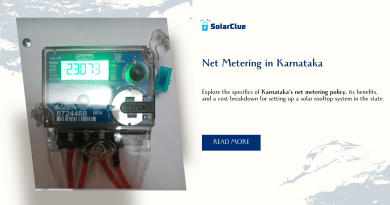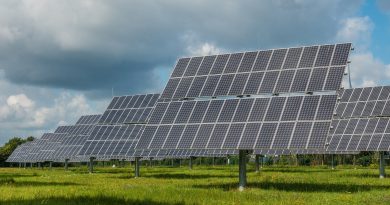Can Off Grid Solar Systems Work 24 Hours Everyday 3
Solar energy has increasingly become an attractive alternative energy source for many households and businesses around the world. With technological innovations, off-grid living has never been more attainable. A frequently asked question among potential users is whether off-grid solar systems can work 24 hours a day. This article aims to provide an in-depth analysis of this subject matter.
Table of Contents
Understanding Off-Grid Solar Systems
In order to address the core question, it’s essential to first understand what off-grid solar systems are. Unlike the typical grid-tied solar assemblies, off-grid systems do not depend on the national electricity grid to function. Rather, they are independent systems designed to provide electricity to cater for the specific energy requirements of a residential or commercial building. The primary components of an off-grid solar system include solar panels, an inverter, charge controller, and a battery bank to store surplus energy.
Working Principle of Off-Grid Solar Systems
Solar panels are responsible for harnessing the energy from the sun during daylight hours, thereby converting it into direct current (DC) electricity. This DC electricity is transformed into alternating current (AC) by an inverter, an action that makes it useful for household or commercial appliances. Excess energy produced by the solar panels during daylight hours is stored in the battery bank, allowing the system to keep power running even during hours with no direct sunlight.
Can Off-Grid Solar Systems Work 24 Hours?
Now, addressing the question at hand – can off-grid solar systems work round the clock? The answer is a resounding yes, but it thoroughly depends on the design and capacity of your solar setup. For instance, the battery bank’s capacity must be substantial enough to store an adequate amount of energy during sunlight hours, sufficient to power your home or office during the night or on cloudy days. Furthermore, the number of solar panels and their efficiency define how much energy can be harnessed and subsequently stored.
Factors Influencing 24-Hour Operation
Aside from system design and capacity, other factors can also influence the possibility of a 24-hour operation. These include geographical location and weather patterns. The quality and quantity of sunlight received are key, and optimal solar panel performance is typically achieved in regions with greater sunlight exposure. In addition, seasonal changes and extreme weather conditions have the potential to limit solar energy production, hence the necessity of a well-sized battery bank for energy storage.
The Role of Energy Efficiency
Understanding the role of energy efficiency is also fundamental in ensuring the 24-hour operation of an off-grid solar system. Careful choice of appliances, in terms of their power consumption rate, is critical. Choosing energy-efficient appliances is highly advantageous in reducing the total load on your solar setup, thus boosting the efficacy of your system. It also promotes sustainable living as it curtails the dependence on fossil fuels.
Alternative Back-Up Systems
While a well-designed off-grid solar system will work nearly flawlessly to provide 24-hour power, having an alternative back-up system in place remains a wise approach. Generators, for instance, can offer a reliable source of power during extended periods of low sunlight. However, these should be used judiciously as frequent reliance on such alternatives defeats the purpose of going solar and embracing renewable energy.
Conclusion
In conclusion, off-grid solar systems can indeed provide power 24 hours a day, conditioned that they are properly designed and set up with an adequate energy storage capacity. Apart from the technological setup, users must also practice energy-efficient habits for seamless operation. With the continuous advancements in solar technology, improvements in efficiency and storage solutions are expected to make 24-hour off-grid solar power increasingly reachable. As we move towards more energy-efficient practices, the broader use of off-grid solar systems stands to not only benefit individual households but also contribute significantly to environmental conservation.




